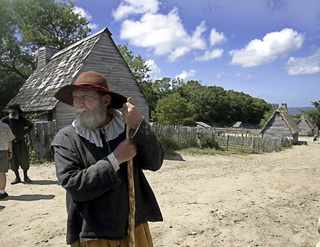When the New York Times Magazine’s 1619 Project hit the streets in August 2019, people in the City rushed to the newstands to get copies. The Project claimed to reframe American history as a story of Black struggle against white supremacy. The introductory essay to the August 2019 print magazine declares that 1776 is not the year of America’s birth. Rather, the true birth date was “in late August 1619” when a pirate ship carrying 20 enslaved Angolans arrived in the English colony of Virginia. The title page of Nikole Hannah-Jones’s essay for the Project claims that these Angolans were subjected to “chattel slavery” and that “our founding ideals of liberty and equality were false when they were written.” Since it was published, the New York Times has teamed up with the Pulitzer Center to promote a high school curriculum based on the 1619 Project, which it is encouraging every teacher and every school district in the country to adopt. In May 2020, the Pulitzer Prize Board awarded Nikole Hannah-Jones the Pulitzer Prize for Commentary for her lead essay in the 1619 Project.
In October 2020, Peter Wood, President of the National Association of Scholars, sent a letter signed by an array of academics to the Pulitzer Prize Board. The letter demanded that the Board rescind the prize that it had awarded to Nikole Hannah-Jones. Wood claimed that Hannah-Jones’s essay was shot full of historical inaccuracies. The letter also cited evidence that the New York Times Magazine’s editor, Jake Silverstein, had performed academic and journalistic malfeasance by altering without public acknowledgement parts of the Project in the face of withering scholarly critiques.
This month, Wood followed up his letter with 1620, a book that tells the story of how the New York Times foisted its 1619 Project on the American public. Whereas the 1619 Project professes to tell, for the first time, the true story of America’s founding, Wood argues for a traditionalist reading of American history centered on the Mayflower Compact, the Declaration of Independence, the Constitution and Lincoln’s Second Inaugural address. Wood joins a chorus of historians who see the 1619 Project as a deeply flawed effort to reframe American history.
“If the 1619 Project were a term paper, any knowledgeable, fair-minded teacher would give it an F and be done with it,” Wood writes.
The first person to raise objections to the 1619 Project’s take on American history was African American historian Leslie Harris, author of “In the Shadow of Slavery”. In March 2020, she wrote an article for Politico entitled “I helped fact-check the 1619 Project. The Times ignored me.” A fact-checker from the New York Times had called Harris before the publication of the 1619 Project, and Harris warned that Hannah-Jones’s reconstruction of American history was full of factual errors. She vigorously disputed the claim that the colonists launched the Revolutionary War to protect the institution of slavery. She told the fact-checker that slavery in the Colonies faced no immediate threat from Great Britain, so colonists wouldn’t have needed to secede to protect it. A movement to abolish slavery was gaining steam in New England by the time of the Revolution. This movement would not begin in England until the 1780s.
Read Full Article »






